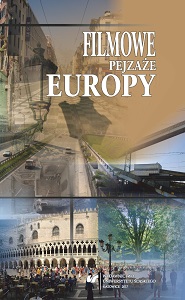„Węgiel jest przeszłością, panno Mullins”. Krajobraz postindustrialny w kinie brytyjskim lat dziewięćdziesiątych
„Coal is history, Miss Mullins”. The post-industrial landscape in British cinema of the 1990s
Author(s): Ilona Copik
Subject(s): Fine Arts / Performing Arts, Photography, Film / Cinema / Cinematography
Published by: Wydawnictwo Uniwersytetu Śląskiego
Summary/Abstract: The aim of this article is an analysis of selected fi lms representative of British cinema of the 1990s, set in coal-mining and industrial cities and towns in Northern England – the region most severely affected by the transformations of the post-industrial era. The landscape seen in these films is not as much a „place of action”’, a necessary background toevents, as it is an equal, permeated-with-meanings, component of a fi lm, integrated withthe logic of the narrative. The author sees the post-industrial landscape as a kind of socio--cultural realism, which provides insight into such problems as the consequences of theend of the black coal era, a technological change which entails a socio-cultural transformation, and the necessity to re-orientate the economy and identity. The landscape shown on screen is symptomatic of the place mired in crisis and full of ambivalence, reflected in the iconography as figures of ruin and desolation, but also symbols of new possibilities. The change brings about new, different signification, which is connected with the destructionof trade union working class culture and the work ethos, and with the necessity to meet thechallenges of entrepreneurship and pivatization. The post-industrial landscape of socialrealism films corresponds with the dissonance, often indicated as a characteristic trait ofBritish culture, in which the imperial myth and conservative ideology interfere with thepoetics of rebellion and anarchist tradition. In the discussed films, the spirit of defiance isclosely related to socio-economic turbulences of the Thatcher era, necessitating politicalinvolvement in a situation of a principal conflict of interest between the government andsociety, more broadly connected to the tensions between what is central/peripheral, local/global and traditional/progressive.
Book: Filmowe Pejzaże Europy
- Page Range: 27-47
- Page Count: 21
- Publication Year: 2017
- Language: Polish
- Content File-PDF

